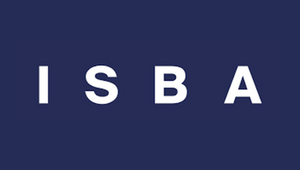
What Does the Agency of the Future Look Like and How Do We Turn 'The Great Resignation' into 'The Great Retention'?

What does the agency of the future look like and how do we turn “The Great Resignation” into “The Great Retention”?
The Future Leaders Action Group from the Alliance of Independent Agencies initiated a project to look at what independent agencies may look like in 2023. Over the last 18 months we have witnessed dramatic changes to the nature of our workplaces and years of change have happened in just months.
This seismic change has dramatically impacted what employees expect from an employer and what employers are seeking. We looked at the agency of the future through the lens of the business model, talent, culture and sustainability. In this article we are focusing on talent although all are interdependent.
The Guardian’s Miles Brignall discusses 'The Great Resignation', sharing that one in four people are considering changing jobs. This not only dilutes key expertise but has significant cost impact. It can be anything from one half to two times the person’s salary, dependent on seniority and skillset. To retain our talent we need to think bigger and be bolder. The context has changed and we must acknowledge this and act, quickly. A company’s best asset is its people. So how can we turn The Great Resignation into The Great Retention?
The agency of the future is predicated on prioritising and valuing the following areas, and then embedding them into daily business and practice:
- Valuing your employees
- Getting the flexible working strategy right
- Recognising shifting attitudes and approaches to work/life balance
- Having core principles and values as a company that your employees can live, breathe and be proud of
Humans need connection
An agency’s primary function is client servicing. Delivering the best service and value for the client is the number 1 goal. As employers shouldn’t we apply the same principles we use looking after our clients to looking after our staff? Of course there are challenges. By far and away the biggest challenge to company culture is the focus on a flexible working strategy. Finding a sweet spot between the benefits of working from home, and the lack of human connection is tough. Flexibility has many pros (a wider and more diverse talent pool is a huge one), but the challenges (let’s not even start on the technical ones) are also important to explore.
Anyone familiar with the 70 20 10 rule of Learning & Development will know that people obtain:
- 70% of their knowledge from job-related experiences,
- 20% from interactions with others, like co-workers and managers,
- 10% from formal learning events.
The knowledge and experience you gain from human interaction is irreplaceable, not to mention the camaraderie and support, and this is what we’ve been missing. Agencies acknowledge this, four in five of them are now delivering training through a hybrid of E-Learning and in person sessions, and 8 in 10 of them are revisiting their flexible working policies to retain talent.
But there are other concerns related to the increase in flexible working. Janine Chamberlin, head of LinkedIn UK says LinkedIn’s own research shows that nine in 10 European businesses will offer flexible working of some sort throughout the next year, but it needs to work fairly in practice. “For instance, nearly three-quarters of workers in the UK are concerned about the impact of ‘proximity bias’—a trend where employees in the office are valued above those who work remotely,” she says. “Over the next year, we can expect to see businesses taking action to ensure that all employees feel included, regardless of where they choose to work.” So there is a huge amount to juggle around getting that culture right. And balancing flexible working and culture is just one piece of the puzzle.
Look out for part two tomorrow to hear how the agency of the future needs to align with employees’ principles and passions in order to get the best out of them…
By Alex Beeden and Alana Drew
To learn more about the Alliance of Independent Agencies go to https://allindependentagencies.org/















